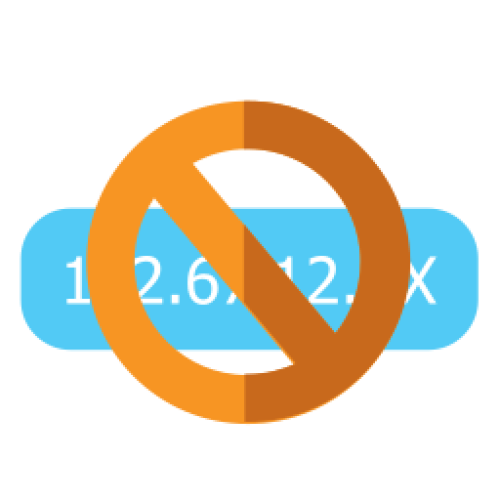Features: A-Z Index
A
B
C
D
E
F
G
I
L
M
N
P
Q
R
S
T
W
Newest 10 Entries
| Title | Calendar |
|---|---|
| Icon |  |
| Description | Day/week/month/year views Advanced “recurring event” settings Event subscriptions: Receive reminders and notifications by event or event type Warnings about conflicting events Microformats support Integrate a calendar month view, or an upcoming events view, onto your design Supports categories: Have multiple event types Multiple time zones: Have different events in different time zones with configurable conversion settings. Priority flagging: Choose between 5 priorities Programmers can even use the calendar to schedule custom tasks (Commandr) to be run RSS and Atom support: Export support, but also support for overlaying news feeds onto the calendar. Supports geotargeting Feedback: Allow members to comment and rate events. Segregate feedback on recurring events by date. |
| Title | Galleries |
|---|---|
| Icon |  |
| Description | Multimedia: Supports images, videos, audio, and more. Personal galleries: Allow your members to create their own galleries which show up on their profile. Support for embedding YouTube videos: Save on bandwidth. Auto-detection of video length and resolution (most file formats) Full tree-structure support: Have galleries within galleries within galleries. Multiple display modes View entries as a slideshow Automatic thumbnail generation Mass import: Also supports importing metadata Optional watermarking: To guard against thieving swines
Geotargeting Adjustments: Automatic size and orientation adjustments according to metadata. |
| Title | Catalogues |
|---|---|
| Icon |  |
| Description | Think “databases on my website”. Flexible data control: Set up multiple catalogues, each with its own set of fields. There are many types of fields, such as short text fields, upload fields, and date fields. Multiple display modes: Display the contents of categories using tables, boxes, or lists. Powerful structure: Each catalogue contains categories which contain entries. Catalogues can have a tree structure of categories and/or work from an index. Configurable searching: Choose which fields are shown on categories, and which can be used to perform searches (template searches). Compliance with data protection legislation: Specify which fields may contain sensitive data. These fields will be anonymised as appropriate when members download or purge their data. Entirely customisable: Full support for customising catalogues, categories, and entries, exactly as you want them- field by field. You can even make custom page templates per-catalogue. Classified ads: Entries can automatically expire and get archived. You can also send out view reports. Community interaction: You can allow users to comment upon and rate entries. Import data from CSV files Periodic content reviews: Helping you ensure ongoing accuracy of your data. |
| Name | Patrick Schmalstig |
|---|---|
| Photograph |  |
| Title / Role | Core Developer |
| Contributions / Notes | Joined Chris Graham behind the scenes in the development of Composr CMS in 2016. Took on the lead developer role in 2023 when Chris Graham stepped back to attend to his new lifestyle changes. Spearheaded the development of Composr CMS v11 and the new website, Composr.app. Formed the company PDStig, LLC to take on professional support and development for Composr CMS users especially after the discontinuation of ocProducts, Ltd. Stepped back as lead developer in April 2025 due to economic constraints. |
| Links |
| Name | Jim Davidson |
|---|---|
| Title / Role | contributor |
| Contributions / Notes | written many tutorials via Arvixe |
| Name | Chris Warburton |
|---|---|
| Title / Role | developer for ocProducts |
| Contributions / Notes | Made some key contributions to ocPortal |
| Name | Haydn Maidment |
|---|---|
| Title / Role | project manager for ocProducts |
| Contributions / Notes | None available |
| Name | Steve Jarvis |
|---|---|
| Title / Role | project manager for ocProducts |
| Contributions / Notes | Wrote many tutorials via Arvixe |
| Name | Philip Withnall |
|---|---|
| Title / Role | Early Developer |
| Contributions / Notes | Coded the chatroom, blogging support, the analytics system, and OcCLE (now Commandr) Masters Degree in Computer Science degree from The University Of Cambridge Other work has included helping out with Firefox, and ongoing work on GNOME |
| Name | Allen Ellis |
|---|---|
| Photograph |  |
| Title / Role | Founder |
| Contributions / Notes | Original designer for ocPortal Also conceived and coded the Theme Wizard and Point Store Son of one of the early inventors of Internet protocols (Usenet, aka Internet newsgroups) Token non-brit |
Top 10 Entries
| Question | What happens when I add a new usergroup to a third-party forum integrated with Composr? |
|---|---|
| Answer | If you are not using Conversr as your forum, Composr won't automatically assign any permissions to the new usergroup. To rectify this, you can use the "Absorb usergroup-permissions" feature in the Admin Zone. This tool allows you to copy the permissions from an existing usergroup to the newly created one, ensuring consistent access and functionality. |
| Question | What are some security considerations regarding super-moderators and super-administrators? |
|---|---|
| Answer | While super-moderators have extensive access to manage your site, certain sensitive privileges are reserved for super-administrators. This includes the ability to impersonate other users, execute arbitrary code, and view private content. These restrictions help prevent potential privilege escalation and ensure the overall security of your website. Exercise caution when granting super-moderator status and trust only reliable individuals. |
| Question | What are some useful tools for debugging permission issues? |
|---|---|
| Answer | Composr provides a couple of tools to help pinpoint permission problems:
|
| Question | How can I test if my permission settings are working correctly? |
|---|---|
| Answer | Composr's "SU" feature allows administrators to temporarily assume the identity of another user, enabling you to experience the site as they would. Simply enter the desired username in the "SU" box in the footer. You can also use "Guest" to browse as an unauthenticated visitor. Remember that using "SU" doesn't accurately reflect online status and retains administrator access to sensitive areas. |
| Question | Can I display different content to different usergroups? |
|---|---|
| Answer | Yes, you can achieve this by leveraging Tempcode within your templates. By using conditional statements like {$IS_IN_GROUP} and {$HAS_PRIVILEGE}, you can show or hide specific content sections based on the user's group membership or privileges. This technique allows you to "tease" premium content to non-paying users or tailor the user experience based on their access level. |
| Question | What are match-key permissions and why would I use them? |
|---|---|
| Answer | Match-key permissions provide a more granular level of access control beyond the standard zone, page, and category permissions. They allow you to restrict access based on specific "match-keys", which are unique identifiers for different actions or content within Composr. For instance, you could use match-key permissions to prevent guests from submitting banners or to restrict access to the member directory for all but specific usergroups. You can also specify custom access denied errors for each match-key. A "match-key" is typically a page-link, such as cms:cms_banners:add. |
| Question | How can I control who can view specific pages or categories? |
|---|---|
| Answer | You can manage access control for zones, pages, and categories primarily through the Permissions Tree Editor (Admin Zone > Security > Permissions Tree Editor). This tool provides a central location to set view permissions for different usergroups. You can also edit individual zone and category permissions through their respective editing interfaces, but the Permissions Tree Editor offers a more streamlined and efficient approach. |
| Question | What is the difference between access permissions and privileges in Composr? |
|---|---|
| Answer | Access permissions control whether members of a certain usergroup can view specific areas of your site, such as zones, pages, and categories. A member only needs one of their usergroups to have access permission to view the content. But permissions work on a deny-first policy; if one of the permissions applicable to viewing something is denied for a usergroup, then the whole thing is denied for that usergroup (e.g. even if a download itself grants access, access will be denied if its category denies access). Privileges, on the other hand, dictate what actions a usergroup is allowed to perform across the website, like using advanced Comcode or bypassing the word filter. |
| Question | How can I change the news archive display to show summaries instead of just headlines? |
|---|---|
| Answer | By default, the news archive screen shows only headlines. To display summaries like the news block, add :inline=1 to the page-link. For example, if your news archive page-link is site:news, modify it to site:news:inline=1. This will show summaries instead of just the headlines in the archive view. |
| Question | What are Trackbacks and how do they work in Composr? |
|---|---|
| Answer | Trackbacks are a blogging feature that creates a link from an article on one blog to an article on another, acting as a citation mechanism. How Trackbacks Work:
To enable trackbacks, go to Admin Zone > Setup > Configuration > Feature options and check the "Trackbacks" option. You can then enable trackbacks for individual content items. |












































